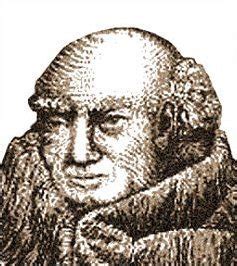A Quote by James D. Watson
There is no firm reason to anticipate that the intellectual capacities of peoples geographically separated in their evolution should prove to have evolved identically. Our wanting to reserve equal powers of reason as some universal heritage of humanity will not be enough to make it so.
Related Quotes
For authority proceeds from true reason, but reason certainly does not proceed from authority. For every authority which is not upheld by true reason is seen to be weak, whereas true reason is kept firm and immutable by her own powers and does not require to be confirmed by the assent of any authority.
Our intellectual powers are rather geared to master static relations and that our powers to visualize processes evolving in time are relatively poorly developed. For that reason we should do (as wise programmers aware of our limitations) our utmost to shorten the conceptual gap between the static program and the dynamic process, to make the correspondence between the program (spread out in text space) and the process (spread out in time) as trivial as possible.
Unless one believes in a superhuman reason which directs evolution, one is bound to believe in a reason inherent in humanity, a motive power transcending that of each separate people, just as the power of the organism transcends that of the organ. This reason increases in proportion as the unity of mankind becomes established.
One of the movements we have developed is to say that, just as intellectual property rights protect the inventions of individuals, common rights are needed to protect the common intellectual heritage of indigenous peoples. These are rights that are recognized through the Convention on Biological Diversity. We are working to make sure that they become foundations of our jurisprudence.
Does God have a reason for wanting us to be charitable, to take care of those who can't take care of themselves? Either God does or God doesn't, it's just logic. If God has a reason then there is a reason independent of God and whatever God's reason is we should figure it out for ourselves. There is a reason and God doesn't really ground morality at all. God wants us to give charity because it's the right thing to do.





































